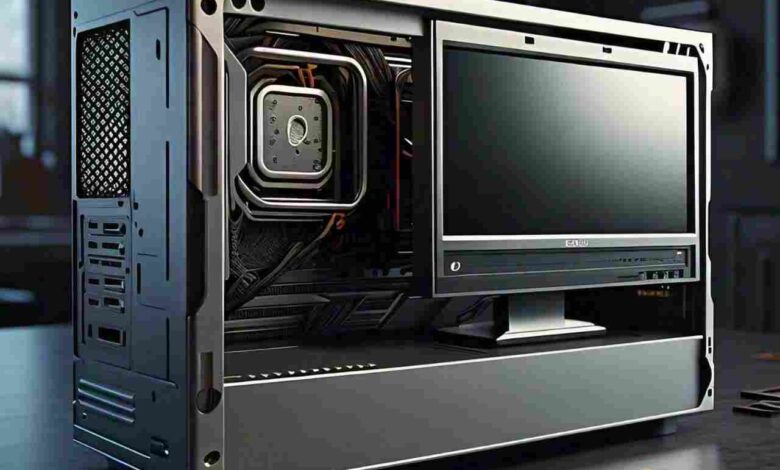How Can You Protect Your Home Computer: Complete Guide

As far as today’s digital age goes, everyone should take the basic measure of trying to protect their home computer. Knowing how to protect your data from these cyber threats will help keep you and your personal information safe. Here’s a comprehensive guide to “how can you protect your home computer”.
Understanding the Importance of Computer Security
Maintaining the security of your computer is essential to protecting such a wealth of personal information and more: bank accounts, home shopping logins, private photos, etc. There is no shortage of how cybercriminals can breach systems, using tactics such as malware, phishing, or ransomware. These threats can also be prevented by robust security measures that you take to keep your computer out of reach.
Keep Your Software Up to Date
One of the most basic yet effective ways to protect your computer is keeping everything up to date. This includes your operating system, browsers, and any applications you regularly use. In many cases, updates contain security patches that plug loopholes exposed by both companies and hackers. Making sure that you enable automatic updates on your system becomes a critical feature to have as some of these new additions come with patches.
Use Strong, Unique Passwords
Your first defense against this type of risk is using strong, unique passwords for all your accounts. Ensure a minimum length of at least 12 characters, including a mix of uppercase and lowercase letters as well as one or more numbers. Never use the same password for all your accounts. It’s recommended to use a password manager to create safe and secure complex passwords.
Enable Two-Factor Authentication
Using two-factor authentication (2FA) on your accounts is crucial. This method requires not just a password, but also another proof of identity, such as a code sent to your phone or through an authentication app. Setting up 2FA on any account, especially those instrumental in recovering other compromised accounts like email and banking, is a more secure option.
Install Reliable Antivirus Software
Choose a trusted antivirus software, such as Avast, to track and remove malware from your computer. The best antivirus programs are always-on and up-to-date. Most antivirus solutions also come with added functionality like real-time protection and phishing detection.
Use a Firewall
A firewall is like a protective wall between your computer and the dangers of the web. Most operating systems have a native firewall that you should make sure gets up and running. The firewall keeps on the live traffic monitoring for both incoming and outcoming logs, closing up if any suspicious activities are detected.
Be Wary of Phishing Scams
Phishing is the fraudulent attempt to obtain sensitive information such as usernames, passwords and bank details by disguising oneself as a trustworthy entity in an electronic communication. Exercise caution with emails or messages asking for personal data even if it looks like from a reputable brand. Check with the sender before clicking on any suspicious links or attachments.
Secure Your Home Network “how can you protect your home computer”
The major point of access to your computer is your home network. More securely, you can change both the default login credentials of your router and enable WPA3 encryption. Keep your router updated – any known vulnerabilities should be fixed by the latest firmware. You might also want to create a second, segregated guest network for people who visit so they can’t compromise your main one.
Use a VPN
Regular backups save important information and software in the event of cyber attacks or hardware failures. Store your backups on an external hard drive or in the cloud. Also ensure that your back-ups are totally encrypted to make certain nobody has unauthorized entry.
Back Up Your Data “how can you protect your home computer”
Regular backups save important information and software in the event of cyber attacks or hardware failures. Store your backups on an external hard drive or in the cloud. Also ensure that your back-ups are totally encrypted to make certain nobody has unauthorized entry.
Avoid Downloading Untrusted Software
Always download software from trusted places. Beneath the notice of antivirus utilities can be found some dangerous software pretending to be something innocuous, as such it is essential that any download comes from a reliable source. Read the reviews and make sure that it is a trustworthy website.
Adjust Your Browser Settings
Privacy and security settings built into most web browsers can help limit malware exposure, shield your privacy from ad networks that collect more data than necessary to function safely. Empower functionalities around pop-up stopper, anti-tracking and web protection. Use security-improving browser extensions including ad blockers and privacy tools.
Physical Security Measures
Although at times forgotten about security of the physical nature is also crucial. Keep your computer secure and be sure to lock your screen when not using it. Cable locks (to lock laptops) as wells an good idea is to consider security cameras.
Educate Yourself and Others
Always be up to date on new security threats and ensure that your household members are as well. By educating people, awareness can be one powerful tool to safeguard them from cyber attacks. Instill security best practices in the members of your household.
Monitor Your Accounts and Systems Regularly
Watch those accounts and your computer running smoothly. Backend administration is crucial in protecting systems from an invading virus. Check your bank and credit card statements for suspicious transactions, monitor email and social media accounts for unauthorized access, and keep an eye on system performance for signs of malware.
Educate Your Household Members
Ensure everyone using your home computer knows the basics. Educate your family on not clicking suspicious links, spotting phishing scams, and maintaining strong passwords. Explain the importance of software updates and antivirus programs.
Utilize Parental Controls
Given the potential exposure to adult content, use parental control if children use your home computer. Parental controls can block access to certain websites, monitor online behavior, and set time limits on PC usage. This keeps your kids safe and reduces the chance of downloading harmful software by accident.
Secure Your IoT Devices
Cybercriminals can use IoT (Internet of Things) devices to attack, such as smart speakers, security cameras, and home automation systems. Update the firmware for all connected IoT devices and secure them with strong passwords. Turn off any unused services and create an IoT-specific network.
Be Cautious with Removable Media
Portable media, for example, USB thumb drives and external hard disks, can be perfect carriers of malware. Untrustworthy or unknown USB drives, no matter whom they are from, should always be submitted to your antivirus scanner before any files on the device are opened. Also, turn off the auto-run feature on your computer.
Protect Against Ransomware
Ransomware is a form of malware that encrypts your files and asks for money to decrypt them. For ransomware defense, it is good to keep backing up your data on an external drive or a cloud service. Your antivirus must be able to detect and block ransomware; never click on suspicious links or download unknown attachments.
Enable Encryption
One way to help ensure the privacy and security of your data is by enabling encryption. Full-disk encryption tools like BitLocker (Windows) or FileVault (macOS) will encrypt your entire hard drive. Use file-level encryption tools for especially sensitive files.
Use Secure Connections “how can you protect your home computer”
When accessing sensitive information online, ensure you are using a secure connection. Look for HTTPS in the website URL, indicating that the site uses encryption to protect your data. Avoid using public Wi-Fi for financial transactions or accessing sensitive accounts; if necessary, use a VPN to secure your connection.
Maintain a Clean Desktop and Browser
By keeping your desktop and browser clean and organized, you might be able to spot any “ugly” intruders at a glance. Wipe your browser cache, cookies, and history often. Purge your desktop background of any junk or bloat, but remember that you can only delete those files and applications in the trash to confirm they are gone.
Create Recovery Plans
In the event of a security breach, you must have a recovery plan in place. Recover by resetting your passwords, using alternative storage, or restoring a good state of the system. Maintain a contact list (bank, credit card companies) to report fraud quickly.




